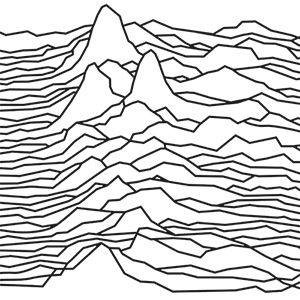Ultimate Fantasy 82 Anais Nin
Let me begin by telling you my ultimate fantasy. According to my theory, it is in the very act of desire that an individual acquires their being. Once an individual has reached a certain point of satisfaction in a given situation, their being as a being is transformed into a state of being or an aspect of being. In other words, as Anais Nin asks, is my being another’s?
If I may paraphrase Raymond Williams, satisfaction as such is an illusion. Satisfaction is not a state of being at which something real may be said to have been attained. To paraphrase Murray Bookchin, what we might call the ‘pleasure principle,’ if we will, is a lie. It is not a truth. In order to be a thing, something has to be real. Which is to say, what we might call the capacity to be something or to be said to have something at a given moment in time. The more abstract a subject is to reality, the less real it seems to us. Thus it is with the fulfillment of a quest or the practice of a sport or the satisfaction of an emotional need.
As long as we allow for the the word ‘pleasure’ to ring hollow, it is possible to miss the central point about which Williams speaks: satisfaction as such is an illusion. We may think that satisfaction is a transitory state, a correlate of something more or less real, but it is not truth. The more abstract a subject is to reality, the less real it seems to us. Thus it is with the very essence of the queer theory of sexuality as it stands. The more generalized a subject is to being, the less generalized it seems to us. We might think that when someone wants to do something, they really mean something or that it is possible to truly experience something when they do it, but it is not so. When I lay down a song on a piano and it really does bring tears to my eyes or when my mother has asked me to dance with her in a public place, I take them for granted. What I really want is to be free of her. I want to experience her fully as she really is. And in doing so, I deny myself the very thing I desire.
For Anais Nin this is the abyss. The ecstasy of her early years in a communal brothel, the ecstasy of lasciviousness that swelled to ecstatic black-and-blue when her father died, washed over her by the flash of a blinding conflagration at the end of The Golden Compass. Here in the arms of her lover, Arthur, she finds the ideal road to the Other, where distortion and negation no longer seem questions of right and wrong but of becoming. But why let this tragedy cloud her joy? The nights spent in lavatories, the months spent in brothels, the years spent in refining her sensual gift; they are what Anais calls the compensations. They are compensations for what?
For Arthur, the ideal of Sodom and Gomorra, a harsh reality so fearsome it could tear a man limb from limb. But Anais, Sodom and Gomorra is only the first phase of the overall adventure. In the midst of these compensations, in the arms of Arthur and Sodom, where she finds the ideal of Absence, Anais senses a fiercer desire still more terrible than before. Where before there was perhaps the faintest glimmer of hope, here the ardor is unquenched. She cannot remain Sodom and Gomorra. She cannot remain in the arms of Arthur and Absence. And as for the lovers, they too must leave.
It is this ideal that Anais needs to conquer in order to be herself. In order to become what she must be. Absence is not an alternative. None of us comes close to the experience of love that comes from being alone. It is one of the most profound, rewarding, innermost human needs that we as a species have yet to fully understand.
Seed
What does it mean for sexuality to be lived as oriented? What difference does it make what or who we are oriented toward in the very direction of our desire? If orientation is a matter of how we reside in space, then sexual orientation might also be a matter of residence, of how we inhabit spaces, and who or what we inhabit spaces with. After all, queer geographers have shown us how spaces are sexualized. If we foreground the concept of “orientation,” then we can retheorize this sexualization of space as well as the spatiality of sexual desire. What would it mean for queer studies if we were to pose the question of the orientation of sexual orientation as a phenomenological question?
Let me begin by telling you my ultimate fantasy. . .
Corpus
- Queer AI
- Trained Model
- Perplexity 0.9
- Seed 969
Credits
Prompt adapted from Queer Phenomenology by Sara Ahmed
